Zenith Tecnica Manufactures 3D Printed Hardware for NASA Psyche Mission
The node components designed by Maxar Space Systems were well suited to the advantages of EBM AM due to their complex geometries.
Assemby of the Psyche SEP chassis, including mission-critical equipment. Photo Credit: NASA/JPL-Caltech.
Zenith Tecnica, a provider of titanium electron beam melting (EBM) also known as electron powder bed fusion (E-PBF) additive manufacturing (AM) has successfully manufactured and delivered critical titanium node components for the chassis of the Psyche Spacecraft launched in October 2023.
After the successful launch, the spacecraft is now traveling to its namesake, the asteroid Psyche, a more than 2-billion-mile journey. The spacecraft will arrive in approximately 2029 and spend 26 months orbiting, mapping and studying the asteroid.
The structure of the Psyche SEP Chassis, including 3D printed titanium nodes interfacing between carbon composite tubes. Photo Credit: NASA/JPL-Caltech.
Chosen by satellite manufacturer Maxar Space Systems, Zenith Tecnica manufactured and delivered node components that are vital in the structure of the Solar Electric Propulsion (SEP) Chassis. The node components designed by Maxar were well suited to the advantages of EBM AM due to their complex geometries and qualified with Maxar’s proven track record of utilizing truss-strut structures.
“The team at Zenith Tecnica is ecstatic to see the successful launch of Psyche and enjoyed working with the Maxar Space Systems’ engineering team on this project,” says Peter Sefont, Zenith Tecnica technical director. “We are proud to have played a small role in making this mission happen and wish the Psyche team all the best with the next phases of the mission.”
Zenith Tecnica is an AS9100-certified contract manufacturer specializing in titanium 3D printing. Unlocking EBM for industries around the world, Zenith Tecnica offers customers a wealth of experience in the AM of titanium components with a supply chain ready to deliver high-quality parts for assembly.
Maxar Space Systems is a provider of comprehensive space technologies. It delivers solutions to government and commercial customers helping them unlock the promise of space to solve problems on Earth and beyond. It addresses a broad spectrum of needs for its customers, including mission systems engineering, product design, spacecraft manufacturing, assembly, integration and testing. Maxar Space Systems is a partner in commercial and government missions, combining more than 60 years of deep mission understanding with reliable performance and longevity.
- Check out the latest advances in electron beam melting (EBM) in our EBM section.
- Learn about 3D printing for the aerospace market. Already the aerospace industry has adopted additive manufacturing (AM) for training devices and end-use parts. AM enables lighter weight, more fuel efficient and easier-to-manufacture parts for aircraft and spacecraft.
Related Content
-
Can the U.S. Become Self-Sufficient in Aerospace Alloy Metal Powders?
6K’s technology can upcycle titanium and nickel-alloy parts into additive manufacturing powder. Here is how the circular economy helps national security.
-
Drones Take Flight with Metal and Polymer 3D Printed Parts: The Cool Parts Show Bonus
Drones produced by Cobra Aero now incorporate many 3D printed parts made through laser powder bed fusion and Multi Jet Fusion processes.
-
“Mantis” AM System for Spacecraft Uses Induction for Deposition
The metal 3D printing system melts wire without lasers. 30-foot-diameter parts are built on a rotary-feed system that eliminates the need for a large machine frame or gantry.



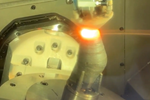

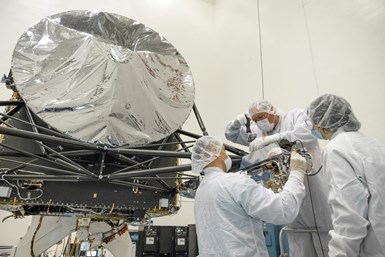
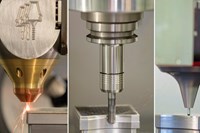

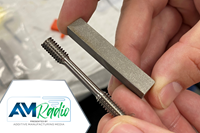
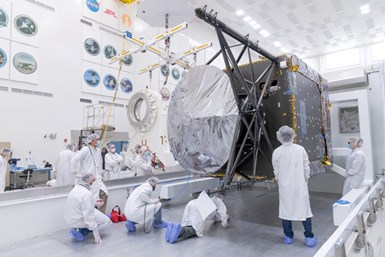
.png;maxWidth=300;quality=90)







